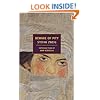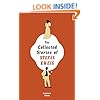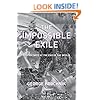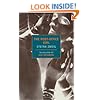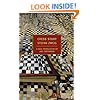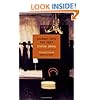
The World of Yesterday
and over one million other books are available for Amazon Kindle. Learn more


Flip to back
Flip to front


The World of Yesterday Paperback – May 1, 2013
See all 18 formats and editions
Hide other formats and editions
| Amazon Price | New from | Used from |
|
Unknown Binding
"Please retry"
|
—
|
— | — |

$14.47
FREE Shipping on orders over $35.
In Stock.
Ships from and sold by Amazon.com.
Gift-wrap available.
NO_CONTENT_IN_FEATURE
Start reading The World of Yesterday on your Kindle in under a minute.
Don't have a Kindle? Get your Kindle here, or download a FREE Kindle Reading App.
Don't have a Kindle? Get your Kindle here, or download a FREE Kindle Reading App.
Choose Your Own Autobiography
Step right into Neil Patrick Harris's shoes in an exciting, interactive autobiography that places the reader squarely in the driver's seat. Learn more
Step right into Neil Patrick Harris's shoes in an exciting, interactive autobiography that places the reader squarely in the driver's seat. Learn more
Product Details
Would you like to update product info or give feedback on images?.
|
Editorial Reviews
Review
“The World of Yesterday is ostensibly an autobiography, but it is much more than that. In this remarkably fine new translation, Anthea Bell perfectly captures Stefan Zweig’s glorious evocation of a lost world, Vienna’s golden age, in which he grew up and flourished.”—Ronald Harwood, award-winning author, playwright, and screenwriter
(Ronald Harwood)“The World of Yesterday is one of the greatest memoirs of the twentieth century, as perfect in its evocation of the world Zweig loved as it is in its portrayal of how that world was destroyed.”—David Hare, award–winning playwright and director of film and theater
(David Hare)“The very success with which this book evokes both the beauty of the past and the fatality of its passing is what gives it tragic effectiveness. It is not so much a memoir of a life as it is the memento of an age, and the author seems, in his own phrase, to be the narrator at an illustrated lecture. The illustrations are provided by time, but his choice is brilliant and the narration is evocative.”—New Republic
(New Republic)"The autobiography of the internationally famous biographer and dramatist is a chronicle of three ages: the golden days of Vienna that ended with World War I; that war and its aftermath; and the Hitler years. Three ages do come to life in Zweig's book."—Publishers Weekly
(Publishers Weekly)"When I opened it, I immediately felt that rare thrill one experiences when meeting a great book."—Newsday.com
(Newsday.com)"A searing memoir."—Intelligent Life
(Intelligent Life)
About the Author
Stefan Zweig (1881–1942) was an Austrian novelist, journalist, biographer, and playwright prominent in the 1920s and 1930s. He is the author of several books, including the novels Beware of Pity and Confusion of Feelings and the biography Conqueror of the Seas: The Story of Magellan. Anthea Bell has translated many French, German, Danish, and Polish literary works into English. Her translations include Wladyslaw Szpilman’s memoir The Pianist, W. G. Sebald’s Austerlitz, and numerous works of children's literature.
More About the Author
Discover books, learn about writers, read author blogs, and more.
Customer Reviews
Most Helpful Customer Reviews
173 of 178 people found the following review helpful
By
Simplicissimus
on July 25, 2001
Format: Paperback
9 Comments
Sending feedback...
By far the most poignant book I have ever read (and I read a lot.) Every impression and observation has a heightened importance when you know the author and his wife both killed themselves not long after the book was published during the worst years of WWII. Brilliantly recreates the pre-WWI Europe that disappeared after 1914 and is only now maybe being recreated in an updated style. Wonderfully describes the tumultuous years between the wars and demonstrates the despair of the worst years of WWII. Also where else can you read good things about the AustroHungarian Empire these days? Would highly recommend this book for anyone between the ages of 10 and 100. Why don't they use books like this in high school and college history classes to make the past come alive? Also enjoyable because it tells things like they were at the time before 50 years of revisionist and deconstructed history have twisted everything around. The real tragedy of this story is that Mr. Zweig and his wife did not wait another 18 months before killing themselves. They may not have found it necessary once the Allies started defeating the Axis powers in Europe and the Pacific. Still Mr. Zweig's World of Yesterday was irreparably destroyed and would never return.
Thank you for your feedback.
If this review is inappropriate, please let us know.
Sorry, we failed to record your vote. Please try again
89 of 89 people found the following review helpful
By
A Customer
on September 30, 1998
Format: Paperback
1 Comment
Sending feedback...
This is a wonderful book. Poor Zweig. He was born in 1881, and by 1914 he had become one of Vienna's leading journalists. Liberal, and a lover of culture, he knew everybody who mattered in literature, the arts and the sciences at a time when Vienna was the most civilised city in the world.
The universal joy in 1914 at the outbreak of war appalled him, and he became so unpopular for decrying it that eventually he emigrated to Switzerland, to work for the Red Cross.
He returned to Vienna in 1919, and was eventually 'forgiven' by his now-contrite friends. But when during the '20s he was invited to the UUSR, and he returned saying it was hell, his avantguard friends rejected him again.
He retired to Salzburg. In 1933, on Hitler's accession to power, he warned that Hitler would invade Austria and kill all the Jews. He was disbelieved. He emigrated to Britain, where he was appalled by the complacency of the government. Finally, via New York (where he wrote this book) he emigrated to Rio in Brazil (he doesn't spell it out, but he did this presumably because he thought the UK would fall to the Germans, and he feared being detained in the US as an enemy alien). It was in Rio in 1942, at the height of German power, that he killed himself in despair.
In this beautiful book, Zweig creates a fin de siecle elegy for his youth, but unlike the previous reviewer I do not think he is nostalgic. His regret is for his illusions that art was synonymous with moral goodness, and his despair over the folly of his fellow men. It was not so much the evil of a few that upset him but the lack of wisdom of the many.
I believe that Zweig was the clearest thinker of the 20th Century, the worst century since the 14th, and I believe his book should be required reading for all.Read more ›
The universal joy in 1914 at the outbreak of war appalled him, and he became so unpopular for decrying it that eventually he emigrated to Switzerland, to work for the Red Cross.
He returned to Vienna in 1919, and was eventually 'forgiven' by his now-contrite friends. But when during the '20s he was invited to the UUSR, and he returned saying it was hell, his avantguard friends rejected him again.
He retired to Salzburg. In 1933, on Hitler's accession to power, he warned that Hitler would invade Austria and kill all the Jews. He was disbelieved. He emigrated to Britain, where he was appalled by the complacency of the government. Finally, via New York (where he wrote this book) he emigrated to Rio in Brazil (he doesn't spell it out, but he did this presumably because he thought the UK would fall to the Germans, and he feared being detained in the US as an enemy alien). It was in Rio in 1942, at the height of German power, that he killed himself in despair.
In this beautiful book, Zweig creates a fin de siecle elegy for his youth, but unlike the previous reviewer I do not think he is nostalgic. His regret is for his illusions that art was synonymous with moral goodness, and his despair over the folly of his fellow men. It was not so much the evil of a few that upset him but the lack of wisdom of the many.
I believe that Zweig was the clearest thinker of the 20th Century, the worst century since the 14th, and I believe his book should be required reading for all.Read more ›
Thank you for your feedback.
If this review is inappropriate, please let us know.
Sorry, we failed to record your vote. Please try again
80 of 83 people found the following review helpful
By
Luc REYNAERT
on December 6, 2002
Format: Paperback
Comment
Sending feedback...
Zweig's aim was to compose an eyewitness report on the first part of the twentieth century in order to save the horrendous truth for the next generations.
It is a shocking report about what he calls the 'Apocalypse': terror, war, revolutions, inflation, famine, epidemics, emigration, the rise of bolshevism, fascism and the most horrific plague of all: nationalism.
He gives us a compelling story of contrasts: the soldiers in the trenches and the arms merchants with their luxury life; English unemployed in five star hotels in Salzburg because they could afford a luxury life on the continent with their unemployment benefits; the brothels and the suicides because of syphilis (Eros Matutina); and the desertion of the Kaiser as a thief in the night at the end of the war, after driving millions of his compatriots into a certain death.
He also relates his encounters with fellow writers like Gide, Rolland, Rilke or Verhaeren.
A moving, outspoken, penetrating and emotional report.
A masterpiece.
It is a shocking report about what he calls the 'Apocalypse': terror, war, revolutions, inflation, famine, epidemics, emigration, the rise of bolshevism, fascism and the most horrific plague of all: nationalism.
He gives us a compelling story of contrasts: the soldiers in the trenches and the arms merchants with their luxury life; English unemployed in five star hotels in Salzburg because they could afford a luxury life on the continent with their unemployment benefits; the brothels and the suicides because of syphilis (Eros Matutina); and the desertion of the Kaiser as a thief in the night at the end of the war, after driving millions of his compatriots into a certain death.
He also relates his encounters with fellow writers like Gide, Rolland, Rilke or Verhaeren.
A moving, outspoken, penetrating and emotional report.
A masterpiece.
Thank you for your feedback.
If this review is inappropriate, please let us know.
Sorry, we failed to record your vote. Please try again
44 of 45 people found the following review helpful
By
Manuel Haas
on July 29, 2000
Format: Paperback
Comment
Sending feedback...
In the 1920s and 1930s Stefan Zweig was one of the most popular wirters of the world, best known for his biographies. After the Nazis had driven him from his native Austria because he happened to be Jewish, he tried to remember his own life. As he stresses in a preface, he does this not because he thinks that his own life is important, but to give as a view of the exciting times he experienced.
Zweig was born in 1881, so the times he describes are not more than 100 years away from ours - and yet it is all incredibly far away, even to a European like myself. Zweig describes pre-war Austria-Hungary as a "world of security" where nothing ever changed. The Jewish Bourgeoisie to which he belonged were obsessed with culture; even as adolescents, Zweig and his friends tried to get hold of the latest in German and French poetry. And to understand what you have heard about Freud, just read the chapter about the sexual hypocrisy among Vienna's upper class around 1900!
World War I changes this world of tolerance and security for ever. Zweig's country is broken up into ridiculous fragments, and the German-speaking countries are in a state of unrest which will eventually lead them into the self-destruction of Nazi barbarism. At the same time, the 1920s are a time of unprecedented creativity for German and Austrian writers (Thomas Mann, Musil, Rilke, Kafka etc.). Zweig shows us this wonderful world of letters, not just in his own country and language, but also in France, Italy, England. He meets Joyce, Rilke, G.B. Shaw, H.G. Wells and Yeats. Zweig's book shows you the riches European culture had to offer before World War II put an end to it. Zweig himself tried to start a new life in Brazil, but when the Nazis had conquered all of Europe in 1942, Zweig gave up all hope and committed suicide. Zweig's tragic fate mirrors that of Europe in his time. This book should be read by anyone who is interested in European culture in the 20th century.
Zweig was born in 1881, so the times he describes are not more than 100 years away from ours - and yet it is all incredibly far away, even to a European like myself. Zweig describes pre-war Austria-Hungary as a "world of security" where nothing ever changed. The Jewish Bourgeoisie to which he belonged were obsessed with culture; even as adolescents, Zweig and his friends tried to get hold of the latest in German and French poetry. And to understand what you have heard about Freud, just read the chapter about the sexual hypocrisy among Vienna's upper class around 1900!
World War I changes this world of tolerance and security for ever. Zweig's country is broken up into ridiculous fragments, and the German-speaking countries are in a state of unrest which will eventually lead them into the self-destruction of Nazi barbarism. At the same time, the 1920s are a time of unprecedented creativity for German and Austrian writers (Thomas Mann, Musil, Rilke, Kafka etc.). Zweig shows us this wonderful world of letters, not just in his own country and language, but also in France, Italy, England. He meets Joyce, Rilke, G.B. Shaw, H.G. Wells and Yeats. Zweig's book shows you the riches European culture had to offer before World War II put an end to it. Zweig himself tried to start a new life in Brazil, but when the Nazis had conquered all of Europe in 1942, Zweig gave up all hope and committed suicide. Zweig's tragic fate mirrors that of Europe in his time. This book should be read by anyone who is interested in European culture in the 20th century.
Thank you for your feedback.
If this review is inappropriate, please let us know.
Sorry, we failed to record your vote. Please try again
